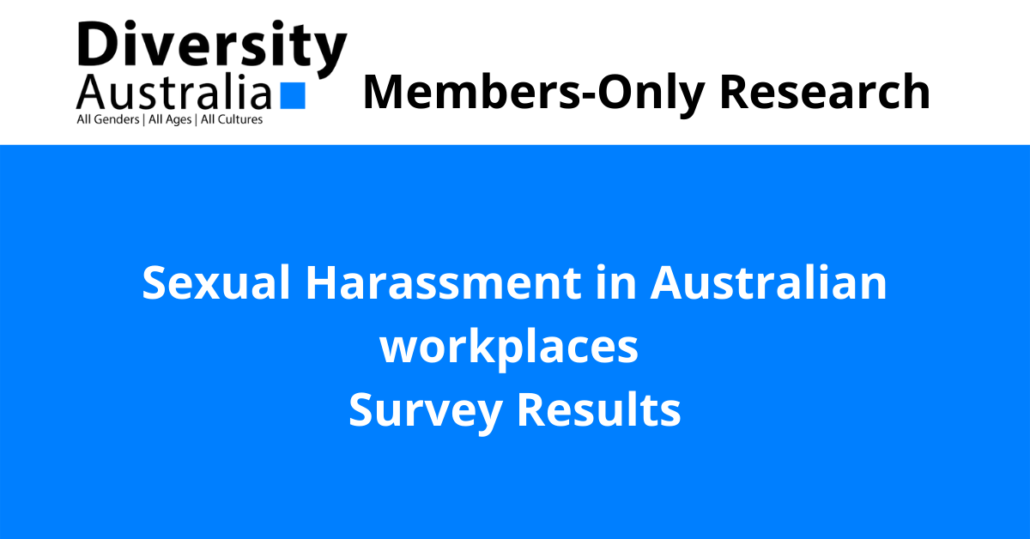Executive Summary
More than 9,600 people from a range of industries responded to the survey between 18 September and 30 November 2018. The majority (68%) were women. Respondents were from all major sectors of the economy, from education and public services to mining, finance and media.
More than half of all respondents (54.8%) had experienced sexual harassment at their most recent workplace or at a previous workplace, and a majority (64%) had witnessed sexual harassment at their most recent workplace or at a previous workplace. Respondents had been harassed by a range of people, including co-workers, customers or clients. The largest group of respondents (38%) had been harassed by a supervisor, manager or senior co-worker. Respondents who had experienced sexual harassment had been subjected to a range of inappropriate behaviours, including crude or offensive remarks, unwanted sexual attention, inappropriate sexual contact and sexual coercion.
Only 27% of those who experienced sexual harassment ever made a formal complaint, and just over 40% told no one at all. The two most common reasons given for this were a fear of negative consequences (55%) and a lack of faith in the complaint process (50%). More than a quarter of those who did complain reported less favourable treatment by their employer, including being forced to leave or resign, being bullied, or having their hours or shifts reduced. Of the minority of people who did complain (27%), most (56%) were not at all satisfied with the outcome, 43% said their complaint was ignored or not taken seriously, and 45% said there were no consequences for the harasser.
Respondents reported that less than half of their workplaces had proper preventative measures in place, including mandatory training for staff, a clear workplace policy, an effective complaints mechanism, or access to workplace health and safety processes. Respondents supported a range of stronger rules to protect workers from sexual harassment, including better protection from victimisation (60%), a quicker complaints process (34%), more information and support for those experiencing sexual harassment (54%), a stronger role for the union (33%) and better remedies for complainants (47%).
Attributions: ACTU Authorised by Scott McManus



















